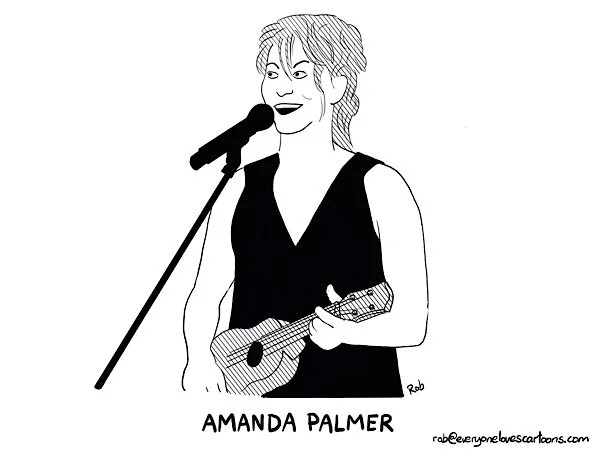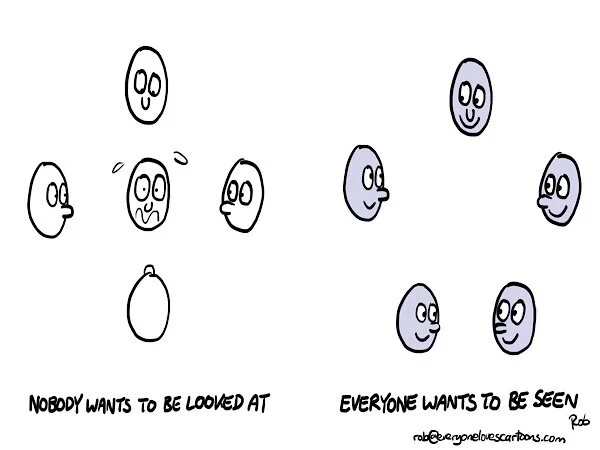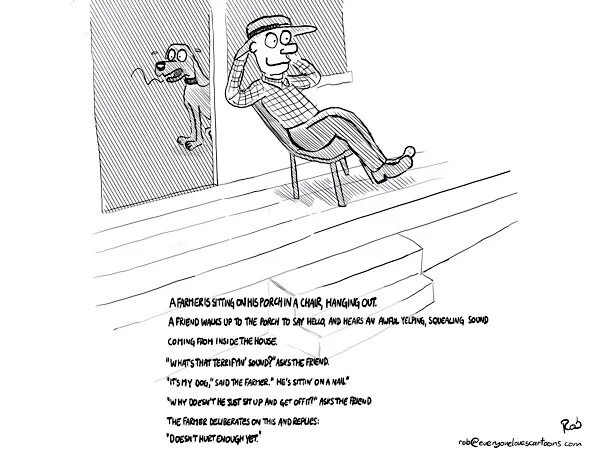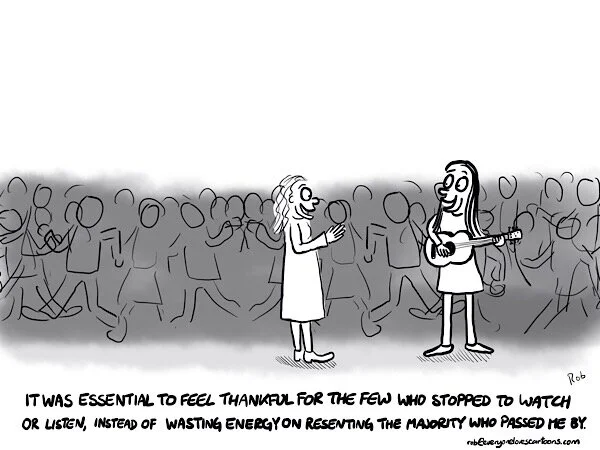There’s a difference between wanting to be looked at and wanting to be seen.
When you are looked at, your eyes can be closed. You suck energy, you steal the spotlight. When you are seen, your eyes must be open, and you are seeing and recognizing your witness. You accept energy and you generate energy. You create light.
One is exhibitionism, the other is connection.
Not everybody wants to be looked at.
Everybody wants to be seen.
From what I've seen, it isn't so much the act of asking that paralyzes us--it's what lies beneath: the fear of being vulnerable, the fear of rejection, the fear of looking needy or weak. The fear of being seen as a burdensome member of the community instead of a productive one.
It points, fundamentally, to our separation from one another.
There's really no honor in proving that you can carry the entire load on your own shoulders. And...it's lonely
There's really no honor in proving that you can carry the entire load on your own shoulders. And...it's lonely
A farmer is sitting on his porch in a chair, hanging out.
A friend walks up to the porch to say hello, and hears an awful yelping, squealing sound coming from inside the house.
"What's that terrifyin' sound?" asks the friend.
"It's my dog," said the farmer. "He's sittin' on a nail."
"Why doesn't he just sit up and get off it?" asks the friend.
The farmer deliberates on this and replies:
"Doesn't hurt enough yet.
American culture in particular has instilled in us the bizarre notion that to ask for help amounts to an admission of failure. But some of the most powerful, successful, admired people in the world seem, to me, to have something in common: they ask constantly, creatively, compassionately, and gracefully. And to be sure: when you ask, there’s always the possibility of a no on the other side of the request. If we don’t allow for that no, we’re not actually asking, we’re either begging or demanding. But it is the fear of the no that keeps so many of our mouths sewn tightly shut.
Collecting the dots. Then connecting them. And then sharing the connections with those around you. This is how a creative human works. Collecting, connecting, sharing.
You can’t ask authentically and gracefully without truly being able to accept “No” for an answer. Because if you’re not truly willing to accept “No” for an answer, you’re not really asking, you’re demanding — you’re begging. At least, that’s how I’ve come to understand asking.
You can’t ever give people what they want. But you can give them something else. You can give them empathy. You can give them understanding. And that’s a lot, and enough to give.
Brené Brown writes: In a 2011 study funded by the National Institute on Drug Abuse, researchers found that, as far as the brain is concerned, physical pain and intense experiences of social rejection hurt in the same way…Neuroscience advances confirm what we’ve known all along: emotions can hurt and cause pain. And just as we often struggle to define physical pain, describing emotional pain is difficult. Shame is particularly hard because it hates having words wrapped around it. It hates being spoken.
It was essential to feel thankful for the few who stopped to watch or listen, instead of wasting energy on resenting the majority who passed me by.
I boarded the plane and kept writing, unable to stop. the ink flowing to the blank pages to the book were my lifeline. My IV, my only escape from collapsing. In that moment I understood something about my writer husband, that i had never understood before: i had a small glimpse on the act of writing something down as a direct, very viable escape from pain. I had no desire to publish this writing, I wasn´t thinking about an audience. I just needed to do it. Or else I´d weep and not being able to stop weeping. For the first time I experienced the physical truth of what was it like to dwell in the act of creation as an escape hatch from an unbearable reality.





